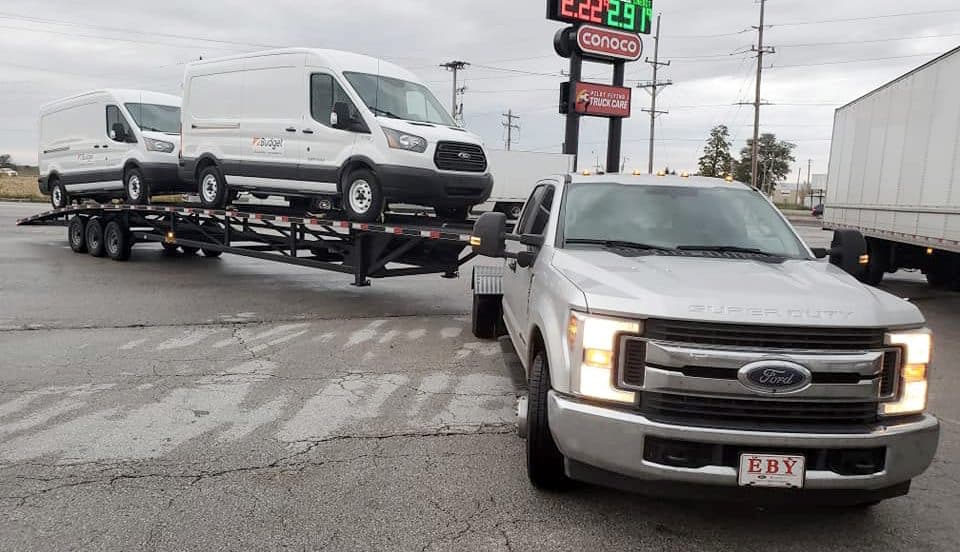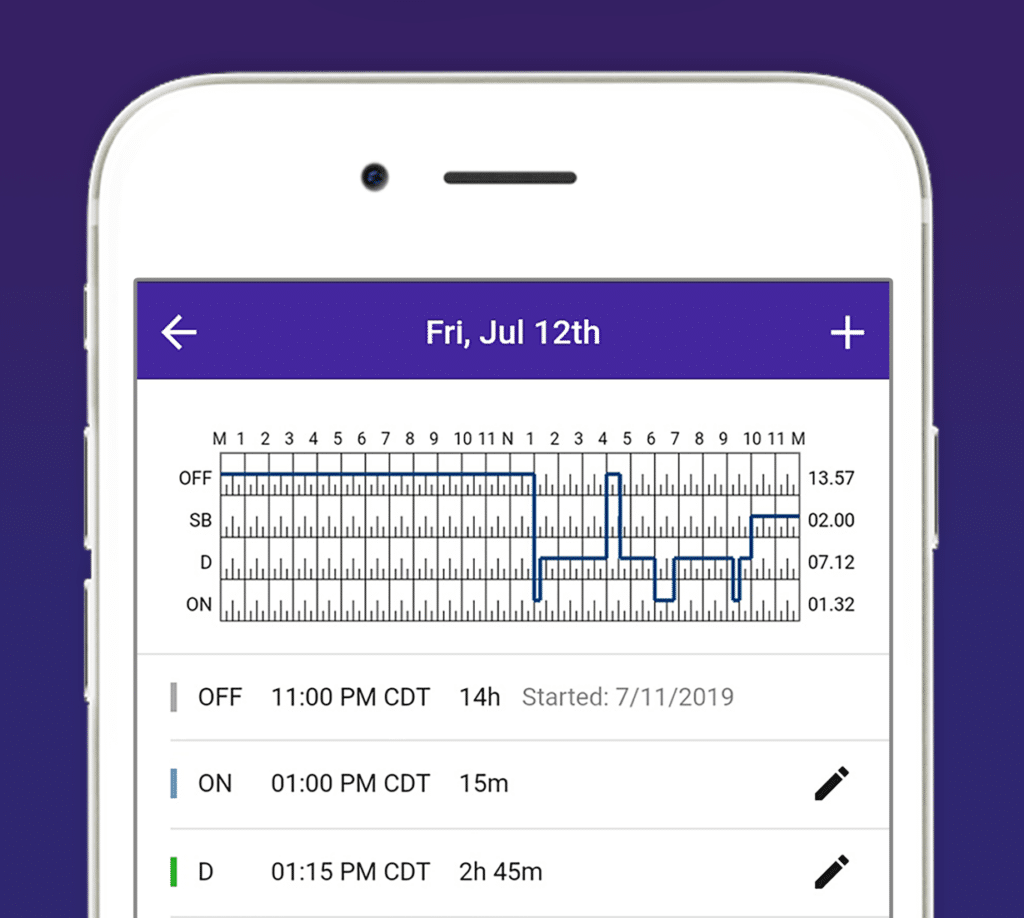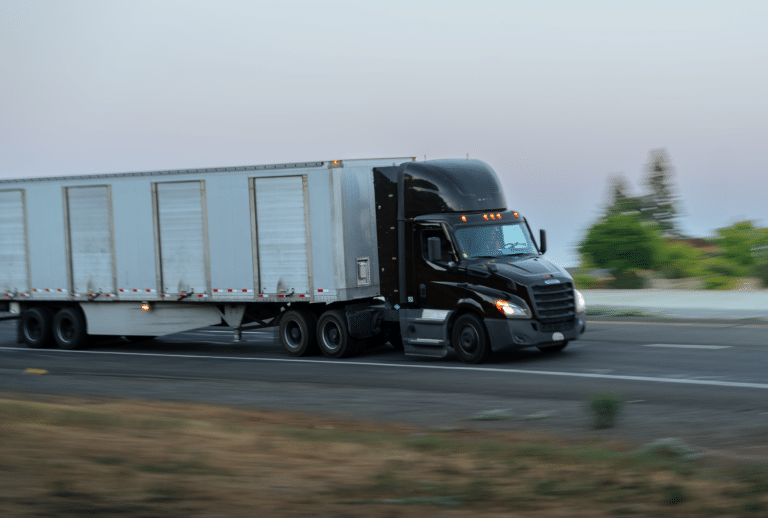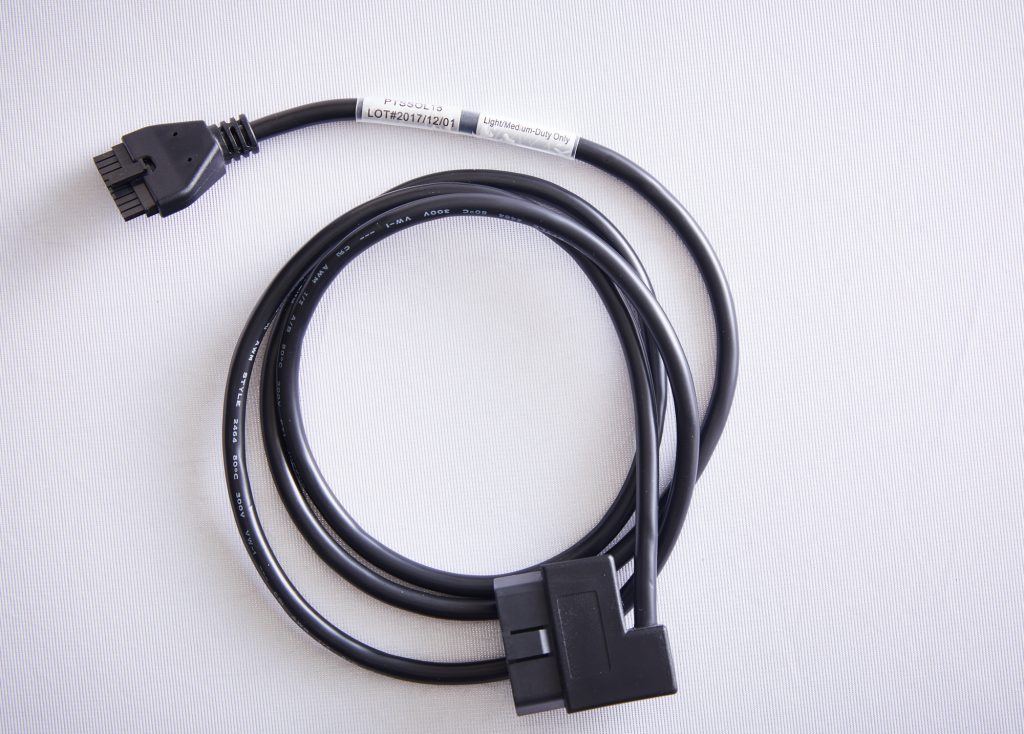Аrе drivers of pickups in Canada required to install ELDs?
View ELDs for all types of vehicles >
Many drivers of pickups are required to install and use ELD. Whether an ELD for pickup trucks is related to the gross vehicle weight rating (GVWR) or the gross combination weight rating (GCWR).
The GVWR is the maximum operating weight set for a vehicle by its manufacturer. It includes not only the vehicle itself, but also the weight of the occupants and cargo it may be carrying. In contrast, the GCWR is the maximum weight set for the vehicle by its manufacturer that includes the GVWR plus the weight of the attached trailer and its load.
For example, if the driver is driving a pickup truck without a trailer and its GVWR weighs 10,001 pounds or more (empty or loaded), the pickup will be classified as a commercial motor vehicle, and therefore have to comply with HOS regulations and need an ELD for the pickup.
In contrast, if the driver is driving a pickup truck like a Dodge Ram 350 with a trailer and its GCWR weighs 10,001 pounds or more (empty or loaded), the pickup will be classified as a commercial motor vehicle, and therefore have to comply with HOS regulations and need an ELD for the pickup.
In short, pickup trucks, just like any other trucks, are required to use ELDs providing the GVWR or GCWR weight is 10,001 pounds or more.
What is an ELD?
Transport Canada defines an ELD as “a certified device or technology that automatically logs the time a driver spends driving, as well as their record of duty status (RODS).” Essentially, the elog device connects to a vehicles’ diagnostic port, where it tracks information about a vehicle itself, as the behaviors of the driver. For example, it will record how long a driver has been on duty, whether they took their required breaks, any accidents that the vehicle was involved in and more. Some ELD devices for pickups even provide updates as to when maintenance is due on the vehicle. For that matter, not all ELDs are the same, as some offer more in-depth features than others.
The data that an ELD collects is valuable to not only dispatchers and carriers, but also officers during roadside inspections. During inspections, the data provided from an ELD can be accessed instantly, making inspections quicker and more accurate.

Canadian ELD Mandate and its timeline
From June 21 2021, the rules surrounding how commercial drivers of pickup trucks and fleets collect and record drivers’ hours of service are changing. From the referenced date, all drivers must transition away from paper logs to electronic logging devices (ELDs) to log their record of duty service. Paper logs are cumbersome and slow, and so drivers are likely to enjoy a whole range of benefits from going fully electronic.
This final rule is known as the ELD Mandate, and it was first proposed by the Canadian government late 2016 after an extensive period of industry stakeholder comments. On December 16 2017, the Government published the regulation amendment proposals in the Canadian Gazette, citing the success of the similar American ELD final rule, setting out the plans and reasoning for transitioning to electronic loggers.
In their final published regulations on the ELD Mandate in June 2019, Transport Canada set their compliance date on June 21, 2021. Drivers, whether owner-operators or part of a fleet operating federally must install an e-log to their commercial vehicle by this date or risk sanctions.
Who must comply with the Canada ELD Mandate?
Transport Canada issued the ELD mandate (also known as the ELD Final Rule) in an effort to improve road traffic as well as driver safety. As part of the rule, commercial motor vehicle drivers are required to use electronic logging devices (ELDs) that monitor driver behaviors electronically. ELDs capture hours-of-service (HOS) data, GPS locations, how many hours the engine is running and how many miles are driven. In essence, the job of an ELD is to add up the time a driver spends actually “driving” and prevent them from violating any HOS regulations.
By now, all required drivers — whether Fords, Dodge Rams or any brand in-between — must use a certified ELD for their light-duty truck to comply with the mandate.
When deciphering whether a driver is required to comply with the ELD Mandate, it is important to first decide whether the driver is required to log their HOS records-of-duty-status (RODS). If they are, they are likely going to be required to comply with the ELD Mandate.
There are nearly 160,000 commercial vehicles that will be affected by the Canadian ELD Mandate. Any company that is operating within a Canadian province comes under provincial jurisdiction, and those providing extra-provincial transportation (including any local activities) fall into federal jurisdiction.
The mandate impacts all federally regulated carriers in Canada, and the terms do not apply to provincially regulated carriers.
ELD Mandate Exemptions
The ELD Mandate has four primary exemptions.
- A commercial vehicle with an engine model built before the year 2000
- When a short-term rental is fewer than thirty days
- A vehicle operating within a 160km radius of its home terminal is not obliged to keep a logbook and therefore is exempt from ELD requirements
- The vehicle is operating under a specific permit issued or has a statutory exemption
Further to the exemptions, if a device malfunctions, drivers are permitted a maximum of 14 days to use paper logs in Canada to record their hours of service (or when a vehicle returns to a home terminal). At the end of the fourteen days, the ELD must be returned to full functionality. It is worth noting that this is a variation from the U.S. Mandate, which allows eight days of manual logging.
Despite what the ELD Mandate requires, an ELD for light duty trucks should still be considered as a means for accurately logging RODS, even if the driver isn’t required to under the mandate.
Driveaway-Towaway Operation Exemption
Drivers of pickup trucks are exempt from ELD Mandate compliance if they perform driveaway-towaway operations. These types of operations involve a being driven as the commodity itself that is being delivered. It could also be a motor home or recreational vehicle trailer that has at least one of its sets of wheels on the road as it is being transported.
ELDs Must Be Integrally Synchronized With the Vehicle’s Engine Computer Module – ECM. What is it?
Today’s modern-day engines have electronic control modules (ECMs) that take inputs (e.g., speed, gear, throttle and temperature) and uses the information to meet requirements related to fuel-efficiency and performance. For example, an ECM might recognize that the passenger’s weight is too low for airbag deployment, and send that information to the airbag deployment system to prevent it from deploying in the event of a crash.
ECMs are a critical part of the ELD Mandate, as they determine whether a car is running or moving, as well as how many miles have been driven (and more). They can provide essential information to fleet managers, not only about the vehicle, but about the manner in which the vehicle is being driven. As a result, fleets are better able to address safety concerns, fuel consumption and other important information that can save them money and make them safer in the long run.
Light-duty Vehicles and Pickup Trucks Have Their Own Set of On-Board Diagnostics Protocols (OBD-II)
Examples of the messages that the generic OBD-II protocols communicate include: engine coolant temperature, absolute throttle position, air-flow rate from mass air flow, and vehicle speed. Some parameters are not available with generic OBD-II protocols include: steering angle, braking, odometer and handling information.
ELD Installation for Pickup Trucks
ELD installation is just as easy for pickup trucks as for any other type of vehicle.

Step 1: Ensure the pickup is ready by making sure that:
- The engine is off.
- The parking brake is on.
- The main power is off.
Step 2: Locate the OBD-II port, and determine the proper placement of the ELD, keeping the following in mind:
- It should be at least 1 foot away from other electrical or metal components, and vents.
- Cabling devices should be secured so they don’t interfere with driving the vehicle.
- The ELD should have a clear line of sight to the sky for GPS purposes.
Step 3: Connect the ELD for pickups to the OBD-II port using the 16-pin connector.
Step 4: Wait for the indicator lights to flash before turning a solid red. Wait another minute for the light to turn green indicating that it has successfully been connected. If it doesn’t turn green, make sure there is an unobstructed view of the sky.
Step 5: After the green light indicates a successful Bluetooth connection, proceed to downloading the app.
What other features are needed for your trucking operations in addition to ELDs?
While some ELDs will provide the most basic requirement in order to meet the standards set by the FMCSA, successful trucking operations rely on other features to help meet RODs and HOS compliance. Such features include:
- Comprehensive dispatch features — Such dispatch features help fleet managers match drivers to jobs. They also provide a bigger idea of what jobs are in progress and what jobs have yet to be assigned.
- Real-time GPS — Helping dispatch is having a real-time location for every vehicle in the fleet. If you know where a vehicle is on its route, you can better assign the job to the closest driver.
- Automated state mileage calculations — Successful trucking operations don’t waste time collecting and tracking state mileage for tax purposes. Calculation of the distance traveled in every jurisdiction may be done automatically . There’s no more administrative work to worry about with automated mileage, and there is less risk of human error.
What is HOS247?
Besides helping drivers and carriers meet e-log compliance with the rules set by Transport Canada, HOS247 is a top-rated ELD provider trusted by fleet managers and their drivers. Other than ensuring Transport Canada compliance, HOS247 offers benefits that include:
- Seamless installation of ELD for pickups hardware combined with an easy-to-use mobile app.
- A fleet manager portal that increases visibility and efficiency of vehicles in the fleet.
- Customizable plan options with no contracts to sign.
- A plan option that includes tablets with data for drivers without mobile devices.
- An All-in-One plan option that offers tablets for drivers who don’t already have them, including data.
- Over-the-phone driver onboarding.
- A multilingual support team.
- The ability to return the ELD within the first two weeks of use without а hassle.
- Easy editing and managing of electronic driver-vehicle inspection reports (DVIRs).
- Helps drivers pass DOT inspections and avoid costly violations.

I’ve co-founded, built and managed several transportation-related businesses. Now, I’m a founder and CEO of HOS247 – an AI Transportation Platform for trucking companies, freight brokers and other logistics operations. We are transitioning old-style operations to technology-advanced logistics entities and help them to grow their businesses. ELDs (electronic logging devices), fleet tracking and management 2.0 combined with AI-powered dispatch tools.












Electronic logging devices (ELDs) have changed how truck drivers track their hours on the road, replacing paper logs with digital records. For team drivers sharing the wheel, using ELDs comes with extra challenges that solo drivers don’t face. Team drivers

For businesses in the transportation industry, compliance with the HOS regulations established by Transport Canada is not optional, it is a legal requirement. Before the implementation of the ELD mandate, truckers were allowed to record their hours of service manually

In today’s highly competitive trucking industry, fleet managers face numerous challenges in ensuring the efficiency, safety, and profitability of their operations. One of the most effective tools for addressing these challenges is GPS fleet tracking technology. By providing real-time visibility
